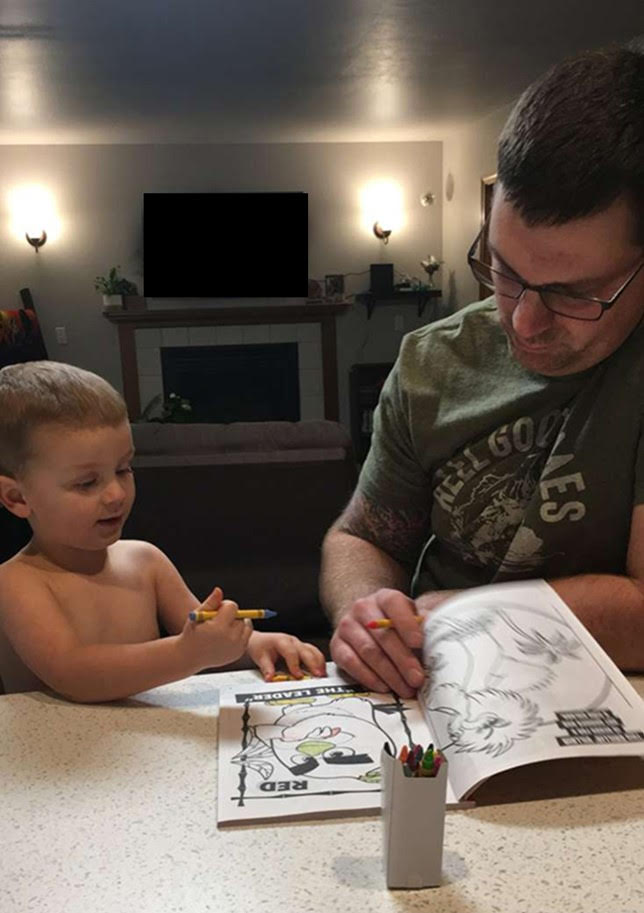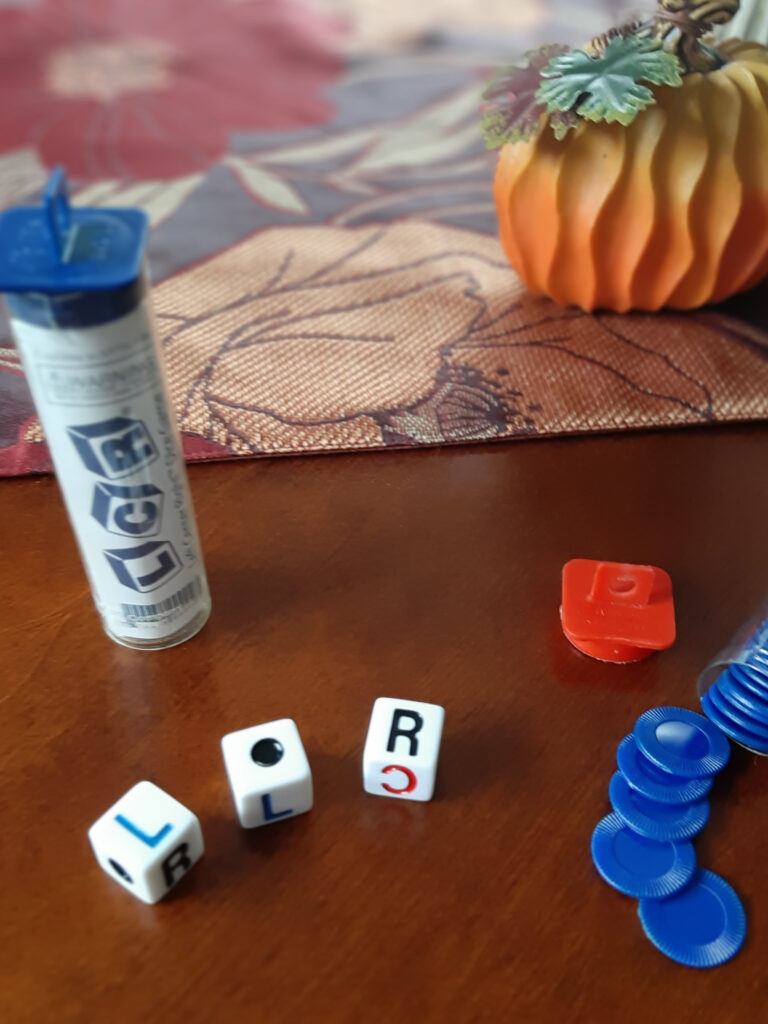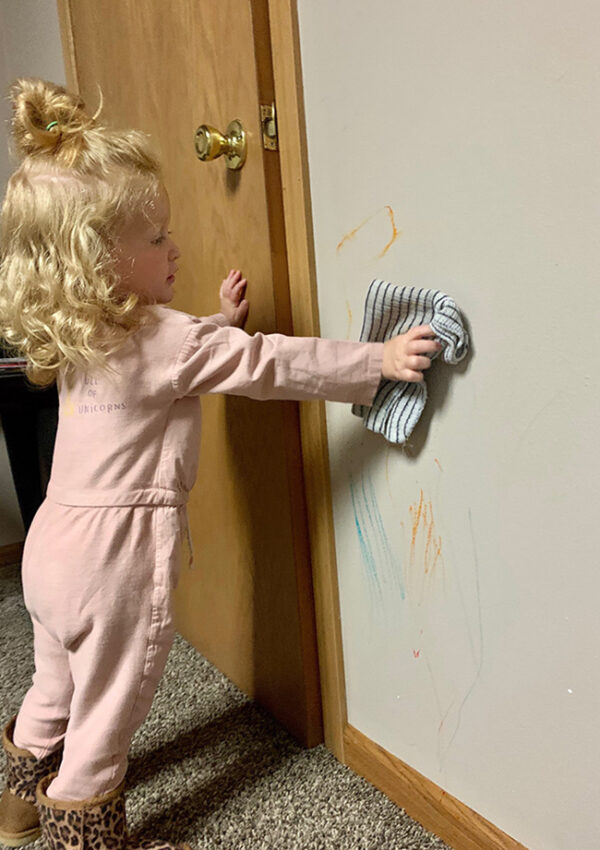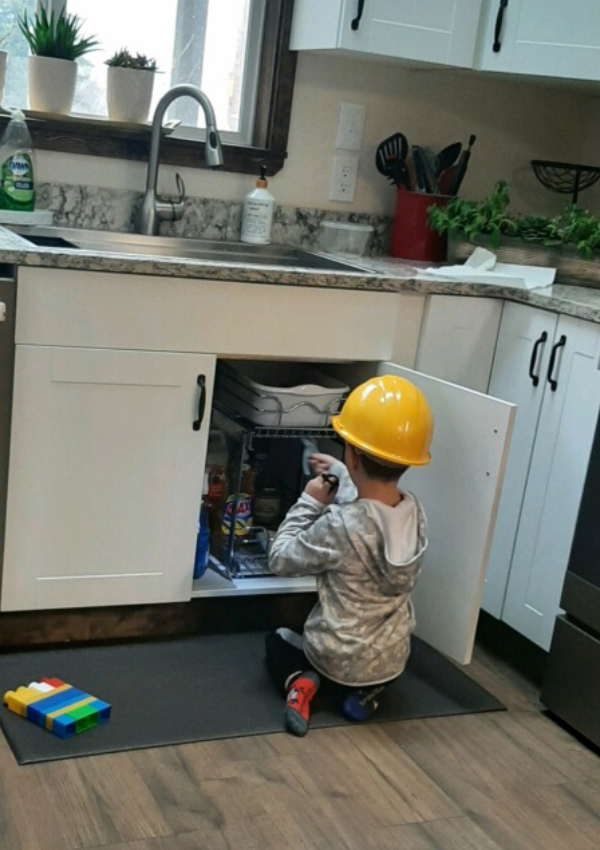Play with your kids!
Play is one of the most underrated tools in the parenting tool box. So many of the parents with young children who come to me say, “They just don’t listen. I ask them to do something and they ignore me/start whining/throw a fit.” I usually follow up with the questions, “How often do you play together?” and “What does play look like?” Then they usually follow that up with a look like: What am I doing here? Clearly this guy didn’t hear me and has a listening problem of his own.
Playing with your child, especially what is called “Child-led Play,” creates an opportunity for your child to feel loved, appreciated, and listened to. When your child consistently (20-30 minutes every day) gets one on one time where you as the parent join them in their world and respect their rules, thoughts, and feelings, it provides them with a great model and a willingness to do the same for you in your world.

The idea of “Child-led Play” is exactly that. Spend those 20-30 minutes following your kid’s lead, playing with the dolls in the way they instruct (ex. Child: “You’re a dragon and you are angry.” Parent: “Ok, I’m a dragon and I am angry. I am so angry at you, I can’t believe you made me this angry.”) As a parent this can be really tough! We might naturally want our kids to focus on something more positive so we would try to correct them and say, “Oh no, I’m a happy dragon.” What this does is tell your child that you think you know how the story in their head is supposed to go better than they do and you don’t trust them to tell it the correct way.
It is always ok to be curious about a certain story or the way your child is playing. The idea is to seek to understand without trying to correct. We want to spend this time, especially just in these isolated 20-30 minutes, assuming that our child knows what’s best and we will respect it.
If you are like me, competitive and a rule follower, it can be exceptionally difficult to follow your child’s lead when it keeps you in Jail indefinitely as they zoom past GO collecting however much money they feel like they deserve that turn. When you feel like flipping the Monopoly board and screaming at that little cheater, I want you to instead: 1. Take a deep breath and 2. Remember this is just this game, not how we will play all games.
When the child is in charge of the game, they pick the rules. When the family or group of friends are all playing the game, we all have to agree on the rules. When I, the parent, am in charge I pick the rules. Kids understand this. When we agree to follow their rules when it’s their turn, they are more easily able to follow our rules when it’s our turn.
Obviously as parents we will have some limits on the play. The same overall house rules will continue to apply. Rules around physical and emotional safety such as no hitting, harming, or breaking things, no name calling or insults of course have to be maintained, and will be dealt with consistently no matter what is going on.
Consistent play allows your child to feel heard and respected and provides them a template on how to hear and respect you as the parent. It also builds a strong positive connection, so even if they don’t want to take out the trash, they will hopefully trust that it is something that is ultimately good for them. The goal of play is that they can now see listening as an opportunity for them to show you that they love and respect you, too.
Recommendations for Child-led Play:
- Set aside 20-30 minutes for each child, 4-7 days a week.
- Pick a time that can be uninterrupted with your focus on them
- No phone/email/tv/etc.
- Quality over quantity on this one. A lot of parents may not have the time or energy for every day. Completely OK! The most important thing is being consistent with whatever schedule and routine works for you.
- Pick a time that can be uninterrupted with your focus on them
- Tell them you want to play whatever they want to play/do.
- They may pick drawing, a board game, a video game, etc.
- Follow their instructions and rules even if they are not traditional or even heavily biased in their direction (the little cheaters).
- Instead of getting annoyed at rules that are unfair, like I would, ask about what made them choose that rule, do that move, etc. as a way to understand their thinking/world view.
- They may pick drawing, a board game, a video game, etc.
- Enjoy the play!
- This is a time to take a break from adult life and be a kid again for 30 minutes.
- Learn and appreciate the wonderful, quirky, unique ways your child is themselves when they aren’t trying to meet someone else’s expectations.
- Notice progress!
- When we have fun with our kids and they have fun with us it fosters mutual respect. Even though we might not change much about how we are giving our expectations and consequences, just designating time to positive, fun, interactions changes how we respond to one another!
By: Bryer Barmore LMFT, CMHS







One Comment
Comments are closed.